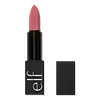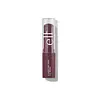What's inside
What's inside
 Key Ingredients
Key Ingredients

 Benefits
Benefits

 Concerns
Concerns

 Ingredients Side-by-side
Ingredients Side-by-side

Polyglyceryl-2 Triisostearate
EmulsifyingEthylhexyl Palmitate
EmollientBis-Diglyceryl Polyacyladipate-2
EmollientSynthetic Wax
AbrasiveSilica
AbrasiveEuphorbia Cerifera Wax
Squalane
EmollientIsononyl Isononanoate
EmollientJojoba Esters
EmollientCaprylic/Capric Triglyceride
MaskingHydrogenated Polycyclopentadiene
Microcrystalline Wax
Emulsion StabilisingOryza Sativa Starch
AbsorbentHelianthus Annuus Seed Wax
Skin ConditioningSclerocarya Birrea Seed Oil
HumectantTocopheryl Acetate
AntioxidantParfum
MaskingMica
Cosmetic ColorantPhenoxyethanol
PreservativeStearalkonium Hectorite
Gel FormingCaprylyl Glycol
EmollientAcacia Decurrens Flower Wax
EmollientPolyhydroxystearic Acid
EmulsifyingLecithin
EmollientPolyglycerin-3
HumectantPropylene Carbonate
SolventPolyglyceryl-3 Polyricinoleate
EmulsifyingIsostearic Acid
CleansingIsopropyl Myristate
EmollientTriethoxycaprylylsilane
CI 77891
Cosmetic ColorantCI 77492
Cosmetic ColorantCI 77499
Cosmetic ColorantCI 77491
Cosmetic ColorantCI 15850
Cosmetic ColorantCI 42090
Cosmetic ColorantPolyglyceryl-2 Triisostearate, Ethylhexyl Palmitate, Bis-Diglyceryl Polyacyladipate-2, Synthetic Wax, Silica, Euphorbia Cerifera Wax, Squalane, Isononyl Isononanoate, Jojoba Esters, Caprylic/Capric Triglyceride, Hydrogenated Polycyclopentadiene, Microcrystalline Wax, Oryza Sativa Starch, Helianthus Annuus Seed Wax, Sclerocarya Birrea Seed Oil, Tocopheryl Acetate, Parfum, Mica, Phenoxyethanol, Stearalkonium Hectorite, Caprylyl Glycol, Acacia Decurrens Flower Wax, Polyhydroxystearic Acid, Lecithin, Polyglycerin-3, Propylene Carbonate, Polyglyceryl-3 Polyricinoleate, Isostearic Acid, Isopropyl Myristate, Triethoxycaprylylsilane, CI 77891, CI 77492, CI 77499, CI 77491, CI 15850, CI 42090
Diisostearyl Malate
EmollientBis-Diglyceryl Polyacyladipate-2
EmollientPhytosteryl/Isostearyl/Cetyl/Stearyl/Behenyl Dimer Dilinoleate
Skin ConditioningOctyldodecanol
EmollientPolyisobutene
Polyethylene
AbrasivePentaerythrityl Tetraisostearate
EmollientNeopentyl Glycol Diethylhexanoate
EmollientIsotridecyl Isononanoate
EmollientMicrocrystalline Wax
Emulsion StabilisingPentaerythrityl Adipate/Caprate/Caprylate/Heptanoate
EmollientIsostearic Acid
CleansingDibutyl Lauroyl Glutamide
Skin ConditioningParfum
MaskingDibutyl Ethylhexanoyl Glutamide
Skin ConditioningCaprylyl Glycol
EmollientTocopheryl Acetate
AntioxidantEthylhexylglycerin
Skin ConditioningHexyl Cinnamal
PerfumingAluminum Hydroxide
EmollientTriethoxycaprylylsilane
Linalool
PerfumingDiisostearyl Malate, Bis-Diglyceryl Polyacyladipate-2, Phytosteryl/Isostearyl/Cetyl/Stearyl/Behenyl Dimer Dilinoleate, Octyldodecanol, Polyisobutene, Polyethylene, Pentaerythrityl Tetraisostearate, Neopentyl Glycol Diethylhexanoate, Isotridecyl Isononanoate, Microcrystalline Wax, Pentaerythrityl Adipate/Caprate/Caprylate/Heptanoate, Isostearic Acid, Dibutyl Lauroyl Glutamide, Parfum, Dibutyl Ethylhexanoyl Glutamide, Caprylyl Glycol, Tocopheryl Acetate, Ethylhexylglycerin, Hexyl Cinnamal, Aluminum Hydroxide, Triethoxycaprylylsilane, Linalool
Ingredients Explained
These ingredients are found in both products.
Ingredients higher up in an ingredient list are typically present in a larger amount.
This ingredient is lipid-based synthetic skin-conditioning agent derived from adipic acid and a mixture of fatty acids. It is often called a lanolin substitute.
As an emollient, it helps soften and hydrate the skin. Emollients create a barrier on the skin to trap moisture in.
Due to its fatty acid base, it may not be Malassezia folliculitis safe.
Learn more about Bis-Diglyceryl Polyacyladipate-2Caprylyl Glycol is a humectant and emollient, meaning it attracts and preserves moisture.
It is a common ingredient in many products, especially those designed to hydrate skin. The primary benefits are retaining moisture, skin softening, and promoting a healthy skin barrier.
Though Caprylyl Glycol is an alcohol derived from fatty acids, it is not the kind that can dry out skin.
This ingredient is also used as a preservative to extend the life of products. It has slight antimicrobial properties.
Learn more about Caprylyl GlycolIsostearic acid is a saturated fatty acid. Its structure makes it a great surfactant.
Surfactants help decrease the surface tension between two liquids. This property also makes it an effective emulsifier. Emulsifiers help prevent waters and oils from separating in a product.
Isostearic Acid is created from oleic acid.
This ingredient may not be Malassezia folliculitis, or fungal-acne safe.
Learn more about Isostearic AcidMicrocrystalline Wax is created by de-oiling petroleum. It is highly refined and purified before being added to cosmetics.
Microcrystalline Wax is used to enhance the texture and create even consistency. It helps stabilize a product by preventing ingredients from separating.
Parfum is a catch-all term for an ingredient or more that is used to give a scent to products.
Also called "fragrance", this ingredient can be a blend of hundreds of chemicals or plant oils. This means every product with "fragrance" or "parfum" in the ingredients list is a different mixture.
For instance, Habanolide is a proprietary trade name for a specific aroma chemical. When used as a fragrance ingredient in cosmetics, most aroma chemicals fall under the broad labeling category of “FRAGRANCE” or “PARFUM” according to EU and US regulations.
The term 'parfum' or 'fragrance' is not regulated in many countries. In many cases, it is up to the brand to define this term.
For instance, many brands choose to label themselves as "fragrance-free" because they are not using synthetic fragrances. However, their products may still contain ingredients such as essential oils that are considered a fragrance by INCI standards.
One example is Calendula flower extract. Calendula is an essential oil that still imparts a scent or 'fragrance'.
Depending on the blend, the ingredients in the mixture can cause allergies and sensitivities on the skin. Some ingredients that are known EU allergens include linalool and citronellol.
Parfum can also be used to mask or cover an unpleasant scent.
The bottom line is: not all fragrances/parfum/ingredients are created equally. If you are worried about fragrances, we recommend taking a closer look at an ingredient. And of course, we always recommend speaking with a professional.
Learn more about ParfumTocopheryl Acetate is AKA Vitamin E. It is an antioxidant and protects your skin from free radicals. Free radicals damage the skin by breaking down collagen.
One study found using Tocopheryl Acetate with Vitamin C decreased the number of sunburned cells.
Tocopheryl Acetate is commonly found in both skincare and dietary supplements.
Learn more about Tocopheryl AcetateTriethoxycaprylylsilane is a silicone used to bind and stabilize ingredients.
As an emulsifier, it helps prevent ingredients from separating. This can help elongate the shelf life of products.
Triethoxycaprylylsilane is often used to coat mineral sunscreens ingredients to help give a better feel. It also helps reduce oxidative stress in sunscreens.
Learn more about Triethoxycaprylylsilane